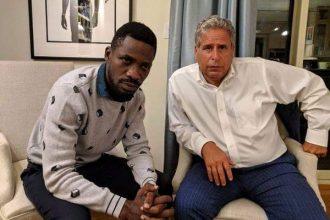President Yoweri Museveni has sparked controversy with his recent criticism of The Daily Monitor, a prominent Ugandan newspaper. In a strongly worded statement, Museveni labeled the publication as “an enemy of Africa” and referred to its journalists as “Wajinga,” which translates to ‘idiots’ in English from Kiswahili.
The Daily Monitor, renowned for its steadfast advocacy of press freedom and fearless journalism, finds itself at the center of a political storm following Museveni’s remarks. This verbal assault comes during a period of heightened media scrutiny and political tension in Uganda, evoking mixed reactions from both citizens and international observers.
Political analysts have swiftly analyzed Museveni’s comments, interpreting them as a strategic move to deflect criticism and consolidate support among his base. Others perceive it as an attempt to suppress dissent and exert control over the media landscape, underscoring Museveni’s knack for using colorful language to shape public discourse.
The response from Ugandans has been diverse, ranging from amusement at Museveni’s choice of words to concern over potential implications for freedom of speech and press freedoms in the country.
In the face of these developments, The Daily Monitor has maintained its characteristic resilience and wit through its various media platforms, continuing to uphold its journalistic standards amidst the scrutiny.
Internationally, reactions have been cautious yet critical. Diplomatic circles emphasize the vital role of a free press in democratic societies, urging respect for media independence despite political tensions. The African Union has also weighed in cautiously, emphasizing the importance of dialogue and mutual respect in resolving differences.
Founded in 1992 amid significant political and social changes in Uganda, The Daily Monitor was established by seasoned journalists dedicated to providing an independent voice in the media landscape. Quickly earning a reputation for fearless reporting and editorial integrity, the newspaper has consistently challenged authority and tackled controversial issues, earning its place as a symbol of press freedom in East Africa.
Throughout its history, The Daily Monitor has navigated challenges including censorship threats, legal battles, and occasional harassment aimed at silencing its critical voice. Nevertheless, the newspaper has remained committed to its mission of informing the public and upholding the principles of a free press.
In 2009, The Daily Monitor made headlines with its groundbreaking investigative series, “Undercover,” exposing high-level corruption and financial misconduct within the government. This series underscored the newspaper’s role as a watchdog and catalyst for societal change, resonating both within Uganda and internationally.
Beyond investigative journalism, The Daily Monitor has fostered a legacy of cultural and literary contributions. Its arts and entertainment section celebrates Uganda’s vibrant creative community, while its opinion pieces and editorial columns offer diverse perspectives on national and global affairs. This multifaceted approach has endeared the newspaper to readers seeking both news and intellectual engagement.




















